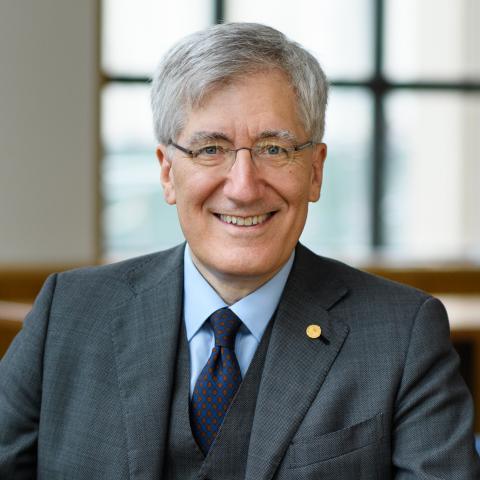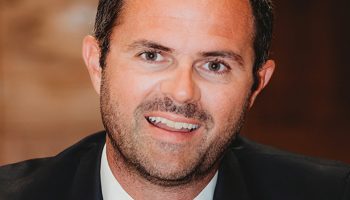Stereotypically, people with opposing viewpoints don’t get along. But stereotypes aren’t always applicable in the context of controversial subjects such as politics. People with opposing viewpoints can be acquainted and even admire each other.
Robert P. George, Princeton University’s McCormick Professor of Jurisprudence and director of the James Madison Program and Cornel West, Dietrich Bonhoeffer Chair at Union Theological Seminary, could not have less common ground in their cultural, social and political beliefs. But they do have a close friendship.
The two are an example of reaching across the political divide, having taught courses together, written together and traveled the world together discussing the importance of civil and honest discourse.
George will draw from this friendship as he gives his lecture, “What Causes – And What Might Cure Campus Illiberalism?” at 2 p.m. Thursday, Aug. 18 in the Hall of Philosophy to continue the Week Eight theme of “New Profiles in Courage.”

Illiberalism is the rejection of basic civil liberties, such as the freedoms outlined in the First Amendment.
“Sometimes it’s not the outright rejection as it is having such a limited and constrained view of those freedoms, that the life is sucked out of them,” George said. “So they lose their robust meaning.”
He plans to talk about situations on college campuses where speakers are disinvited from speaking because of their personal views, despite the importance of their research or necessary topics they may have planned to discuss.
“Sometimes it’s worse than disinvitations, although that’s bad enough,” George said. “A speaker is not only protested … but are obstructed or shouted down or not allowed to be heard or threatened or intimidated.”
These are all examples of illiberalism, and George said one instance he remembers profoundly is Dorian Abbot, associate professor of geosciences at the University of Chicago. Abbot was disinvited to give the 2021 John Carlson Lecture at the Massachusetts Institute of Technology.
“His lecture was not going to be on anything controversial,” George said. “It was going to be on how scientists figure out what the climate is like on planets outside our solar system. That’s not a political talk, but a very interesting one from a scientific point of view.”
MIT was pressured by people on campus to disinvite Abbot after reading an op-ed he and another colleague released on how hiring in the science industry should be based only on scholarly accomplishments, not race, gender or any other identifiable factor.
“It is controversial that you should hire only on the basis of scholarly narrative — we have a big debate on this in our country,” George said. “There were people who didn’t approve of Professor Abbot’s point of view (and) they demanded that MIT cancel his lecture.”
When George found out about the cancelation, he got in touch with Abbot and gave him the opportunity to give the same talk, but at Princeton.
“The lecture went forward, but not at MIT,” George said. “That’s an example of someone being denied an opportunity to speak his case. Not because of what he was going to be saying at MIT, but because of his views about an unrelated matter.”
A properly liberal spirit welcomes an expression of a wide range of viewpoints, George said; the best approach is to bring up all sides of controversial questions so people can make up their minds themselves.
George said he doesn’t like ideologically-partisan labels, but sometimes they are necessary to provide a broad perspective.
“We need to be careful because most people don’t fit under any one comprehensive description,” George said. “We need to make sure that in our effort to be efficient in our communication, we don’t shortchange accuracy.”
Labels and illiberalism can damage the intellectual culture of any campus, from K-12 schools to graduate programs. George said it deprives young people of the opportunity to learn.
“In all fields of learning, it’s important to the health of the intellectual enterprise that liberalism is not ashamed,” George said. “(It needs) a wide range of reasonable points of view that are well-expressed.”
George said he and West are dear friends who happen to be at different places on the political spectrum.
“We can learn from each other because we don’t go into it convinced that we absolutely know the truth infallibly,” George said. “I learn from Cornel all the time, and he says he learns from me all the time.”
People who seek the truth will find others who wish to do the same, and then there are those who do not conform to what people believe they should. George said both of these kinds of people should be appreciated.
“I want to commend the courage, both of the dissenters, whether I happen to agree with them or not, that doesn’t matter,” George said. “They’ve got the courage to express their dissent. They deserve commendation for that. And I want to commend the courage.”




